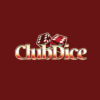Poker is a game that combines skill, strategy, and patience. To truly excel at poker, you must not only understand the basic rules and hand rankings but also develop a proficiency in executing strategic moves. In this article, we will delve into the art of poker split, uncovering unique strategies and tips to enhance your gameplay and increase your chances of success.
Key Takeaways:
- Understanding the concept of split in poker is crucial for maximizing your wins.
- Adopting an aggressive posture at the poker table can help you assert dominance and intimidate opponents.
- Patience is a key trait for successful poker players, and folding weak hands is often the best strategy.
- Learning to read your opponents’ behavior and betting patterns can give you a strategic advantage.
- Continuous improvement is essential in poker, and studying recommended poker books can provide valuable insights.
Adopt an Aggressive Posture at the Poker Table
Being aggressive at the poker table is crucial for success. It allows us to assert dominance, intimidate opponents, and increase the size of poker pots. However, it’s important to note that aggressive betting should be balanced with patience and used strategically. We should only employ this strategy when we have strong starting hands.
By betting aggressively with premium hands, such as pairs of Kings, Queens, or Aces, we can put pressure on our opponents and force them to make difficult decisions. Aggressive betting can also help us identify weaker players and weed them out of the competition. It sends a clear message that we are serious about our hand and willing to take risks to win.
It’s important to keep in mind that being aggressive doesn’t mean betting recklessly. We should still evaluate the strength of our hand and the likelihood of success before making aggressive moves. By adopting an aggressive posture at the poker table, we can take control of the game, maximize our winnings, and keep our opponents on their toes.
Benefits of an Aggressive Poker Strategy
- Intimidation: Aggressive betting can intimidate opponents and force them to make mistakes or fold prematurely.
- Building the Pot: By betting aggressively, we can increase the size of the pot, potentially leading to larger winnings.
- Identifying Weak Players: Aggressive play can help us identify weaker opponents who are more likely to fold under pressure.
- Gaining Control: Taking an aggressive posture gives us control over the game, dictating the pace and direction of play.
“Being aggressive at the poker table is like wearing a mask of confidence. It puts our opponents on edge and makes them question their own hands.” – Poker Pro
Adopting an aggressive posture at the poker table is a powerful strategy that can enhance our chances of success. By evaluating the strength of our hand and betting strategically, we can assert dominance, intimidate opponents, and increase our winnings. Remember to balance aggression with patience and make strategic moves based on the strength of our starting hand. Whether we’re playing in a friendly game or a high-stakes tournament, an aggressive poker strategy can help us take our game to the next level.
Practice the Art of Patience
To succeed in poker, one must master the art of patience. Patience is a fundamental poker strategy that involves folding weak hands and waiting for stronger ones. By practicing patience, players can avoid unnecessary risks and conserve their chips for favorable opportunities.
A patient poker strategy allows players to carefully observe their opponents’ gameplay and make informed decisions based on their actions. This skill is especially valuable in understanding the tendencies of other players and adjusting one’s own gameplay accordingly.
“Patience is not simply the ability to wait – it’s how we behave while we’re waiting.” – Joyce Meyer
Benefits of Practicing Patience in Poker
1. Avoid Chasing Losses: By folding weak hands and avoiding unnecessary risks, players can prevent themselves from chasing losses and making emotional decisions.
2. Improve Decision-Making Abilities: Patient players have more time to analyze the game and make calculated decisions based on the information available to them. This can lead to better judgment and increased chances of making profitable moves.
3. Maintain Focus and Composure: Patience helps players stay focused and composed, even during long periods of quiet play. This mental fortitude is essential for enduring the ups and downs of the game without succumbing to tilt.
| Patience in Poker | Key Benefits |
|---|---|
| Avoid Chasing Losses | Prevent emotional decisions and unnecessary risks |
| Improve Decision-Making Abilities | Analyze the game and make calculated moves |
| Maintain Focus and Composure | Stay mentally strong and avoid tilt |
Mastering the art of patience in poker is a skill that requires practice and discipline. By folding weak hands, observing opponents, and staying focused, players can enhance their overall gameplay and increase their chances of success at the poker table.
Eyes of the Hawk
When playing poker, it’s not just about the cards you hold in your hand. It’s about reading your opponents and understanding their strategies. The ability to observe your opponents and analyze their behavior is crucial in gaining an edge at the poker table. By studying their moves, you can make more informed decisions and increase your chances of winning.
One of the key aspects of reading poker players is paying attention to their eye movements. The eyes can often reveal valuable information about a player’s hand strength and intentions. For example, if a player looks away or avoids making eye contact when they have a strong hand, it may indicate that they are trying to bluff. Conversely, if a player maintains steady eye contact while betting, it could suggest confidence in their hand. By studying these subtle cues, you can gain insights into your opponents’ likely hand strength.
In addition to eye movements, observing other idiosyncrasies and betting behavior can provide valuable information. For example, a player who consistently raises when they have a strong hand and bets timidly when they are bluffing may have predictable tendencies. By recognizing these patterns, you can adjust your own strategy accordingly and exploit their weaknesses. Remember, poker is a game of both skill and psychology, and understanding your opponents’ tendencies can give you a strategic advantage.
In It for the Long Haul
Poker is not a game of instant gratification. It’s a long-term endeavor that requires dedication, practice, and a willingness to learn from both wins and losses. Adopting a long-term poker strategy is crucial for improving your gameplay and maximizing your chances of success. In this section, we will explore the importance of learning from experience and developing a mindset that is focused on continuous improvement.
One of the key aspects of a long-term poker strategy is setting a budget and sticking to it. It’s important to approach the game with a responsible mindset, not allowing emotions or impulsive decisions to dictate your actions. By setting limits on how much you’re willing to invest in the game, you can avoid potential financial pitfalls and ensure that your poker journey is sustainable in the long run.
Learning from experience is another essential element of a successful long-term strategy. As you play more and gain experience, you’ll encounter various scenarios and challenges that will test your skills. It’s crucial to reflect on your gameplay and analyze the decisions you’ve made in order to identify areas for improvement. By learning from your mistakes and successes, you can refine your strategy and enhance your overall performance at the poker table.
Remember, becoming a skilled poker player takes time. It’s important to be patient and not get discouraged by setbacks along the way. Embrace the journey and view each game as an opportunity to learn and grow. With dedication, a commitment to continuous improvement, and a long-term perspective, you can elevate your poker skills and increase your chances of long-term success.
Table: Tips for Long-Term Poker Success
| Tip | Description |
|---|---|
| Set a Budget | Establish a financial limit for your poker play to ensure responsible gambling. |
| Reflect on Your Gameplay | Analyze your decisions and outcomes to identify areas for improvement. |
| Learn from Mistakes and Successes | Use both wins and losses as learning opportunities to refine your strategy. |
| Be Patient | Understand that poker is a long-term game and success takes time. |
“Poker is a game of skill and strategy. To succeed in the long run, you need to approach it with discipline, patience, and a commitment to learning from your experiences.” – Anonymous
Fine-Tune Your Skills
Improving your poker skills is essential for becoming a successful player. By continuously learning and honing your abilities, you can elevate your gameplay and increase your chances of winning. There are various resources available to help you improve, including poker books, blogs, articles, and videos.
One valuable resource for enhancing your poker knowledge is poker books. These books provide insights and strategies from experienced players that can give you a competitive edge. Some recommended poker books include “Modern Poker Theory” by Michael Acevedo and “Harrington on Hold’em” by Dan Harrington. These books cover a wide range of topics, from game theory optimal play to tournament strategies, and can help you develop a well-rounded understanding of the game.
Learning from the Experts
To further improve your skills, it’s important to seek guidance from experts in the field. Poker blogs and articles written by professional players can offer valuable insights and advice. Watching videos of high-stakes poker games and analyzing the gameplay of top players can also help you gain a deeper understanding of the game.
By actively studying the game and seeking out resources that provide expert knowledge, you can fine-tune your poker skills and continually improve as a player. Remember, poker is a game of skill, and the more you invest in developing your abilities, the better your chances of success at the table.
The Best Poker Strategy Books To Read (Or Listen To)
When it comes to improving your poker game, there are plenty of resources available to help you hone your skills. One of the most effective ways to enhance your understanding of the game is by reading poker strategy books. These books offer valuable insights from experienced players and can provide you with the knowledge and strategies you need to take your poker game to the next level.
One highly recommended book is “Modern Poker Theory” by Michael Acevedo. This book delves into advanced strategies based on game theory optimal play, providing a comprehensive guide for serious players looking to refine their skills. Another must-read is “Harrington on Hold’em” by Dan Harrington, a renowned poker player. This book focuses on tournament play and offers expert strategies that can help you navigate the complexities of this format.
If you’re interested in the psychological aspect of poker, “The Mental Game of Poker” by Jared Tendler and Barry Carter is an excellent choice. This book explores tilt control, confidence, and dealing with variance, all of which are crucial for long-term success in the game. For those looking to develop a solid foundation in poker theory, “The Theory of Poker” by David Sklansky is a highly regarded resource that covers key concepts and strategies.
| Book | Author |
|---|---|
| “Modern Poker Theory” | Michael Acevedo |
| “Harrington on Hold’em” | Dan Harrington |
| “The Mental Game of Poker” | Jared Tendler and Barry Carter |
| “The Theory of Poker” | David Sklansky |
If you’re looking to expand your poker knowledge even further, there are other recommended poker strategy books worth exploring. “Mastering Small Stakes No-Limit Hold’em” by Jonathan Little provides valuable insights for players looking to succeed in low-stakes games. “The Mental Game of Poker 2″ by Jared Tendler builds upon the concepts introduced in the first book and delves deeper into the psychology of the game. “Harrington on Hold ’em Expert Strategy for No Limit Tournaments” by Dan Harrington offers additional strategies and techniques specifically tailored for no-limit tournament play.
By immersing yourself in these recommended poker strategy books, you can gain a deeper understanding of the game, learn from the experiences of experts, and fine-tune your skills. Remember, poker is a game of strategy and skill, and continuously educating yourself is key to staying ahead of the competition.
Recommendations from Experts
In our quest to provide you with the most comprehensive poker strategy guide, we reached out to professional players and coaches for their top recommendations on poker books. These experts have honed their skills through years of experience and success in the poker world. Here are some highly recommended books that have been endorsed by the pros:
1. “Mastering Small Stakes No-Limit Hold’em” by Jonathan Little
Jonathan Little is a renowned poker professional and coach, and his book offers invaluable insights into mastering small stakes no-limit hold’em. Whether you’re a beginner or an intermediate player, this book provides a step-by-step guide to improving your game and dominating the small stakes tables.
2. “The Mental Game of Poker 2” by Jared Tendler
Jared Tendler is a leading expert in the mental game of poker, and his book is a must-read for any serious player. In this sequel to his acclaimed first book, Tendler dives deeper into the psychological aspects of the game, helping you develop mental toughness, overcome tilt, and improve your decision-making skills.
3. “Harrington on Hold’em Expert Strategy for No Limit Tournaments” by Dan Harrington
Dan Harrington is a former World Series of Poker Main Event champion, and his book is considered a classic in the world of tournament poker. Harrington breaks down tournament strategy in a comprehensive manner, providing valuable insights and techniques that can give you an edge in no-limit hold’em tournaments.
These recommended poker books have been carefully selected by experts who have achieved great success in the game. By studying and applying the strategies and concepts discussed in these books, you can elevate your poker skills and improve your chances of winning.
Additional Poker Strategy Books Worth Reading
In addition to the previously mentioned poker strategy books, there are several other highly recommended books that can further enhance your understanding of the game and improve your strategic thinking. These books provide valuable insights and techniques from experienced players, allowing you to expand your knowledge and skills in poker.
1. “Super System 2” by Doyle Brunson
Considered the “Bible of poker players,” this book is a must-read for anyone serious about mastering various poker games. Doyle Brunson, a legendary poker player, shares his knowledge and expertise in this comprehensive guide, covering different poker variations and strategies.
2. “The Myth of Poker Talent” by Alexander Fitzgerald
This book focuses on exploitative play, teaching you how to manipulate and outsmart your opponents. Alexander Fitzgerald provides valuable insights into understanding player tendencies, making profitable decisions, and capitalizing on your opponents’ weaknesses.
3. “Playing The Player” by Ed Miller
Written by Ed Miller, a renowned poker author, this book delves into the psychology of poker and how to read and manipulate your opponents. By understanding your opponents’ thoughts and behaviors, you can gain a strategic advantage and make more accurate decisions at the poker table.
Expand your knowledge and improve your gameplay by adding these additional poker strategy books to your reading list. Each book offers unique perspectives and valuable strategies that can help you excel in the game of poker.
The Importance of Mathematics in Poker

Mathematics plays a crucial role in the game of poker. Understanding poker math is essential for making informed decisions at the poker table. By analyzing probabilities and odds, you can gain a deeper understanding of the game and improve your overall strategy. Let’s explore the significance of mathematics in poker and how it can give you an edge over your opponents.
One of the key aspects of poker math is probability. By calculating the likelihood of certain outcomes, you can make more informed decisions about whether to bet, call, or fold. Probability also helps you assess the strength of your hand and determine the potential of hitting certain cards in the future. It allows you to assess risk and make strategic choices based on the odds.
Another important mathematical concept in poker is expected value (EV). EV involves calculating the average value of a particular decision over the long run. By considering the potential outcomes and their associated probabilities, you can determine whether a particular action is likely to be profitable or not. Understanding EV can help you make more rational and logical decisions, rather than relying solely on instinct or emotion.
By incorporating mathematics into your poker strategy, you can gain a competitive advantage over other players. It allows you to make more calculated decisions based on logical reasoning rather than relying solely on luck. To further enhance your understanding of poker math, consider reading books such as “Essential Poker Math, Expanded Edition” by Alton Hardin. This comprehensive guide provides valuable insights into the mathematical aspects of the game, helping you improve your overall gameplay.
Table: Probability of Hitting Different Hands
| Hand | Probability |
|---|---|
| Royal Flush | 0.000154% |
| Straight Flush | 0.00139% |
| Four of a Kind | 0.0240% |
| Full House | 0.1441% |
| Flush | 0.1965% |
| Straight | 0.3925% |
| Three of a Kind | 2.1128% |
| Two Pair | 4.7539% |
| One Pair | 42.2569% |
| High Card | 50.1177% |
The Art of Reading Poker Tells
Reading poker tells is a crucial skill that can greatly enhance your gameplay and give you a significant advantage at the poker table. By observing your opponents’ body language and behavior patterns, you can gain valuable insights into the strength of their hands and make more informed decisions.
According to Zachary Elwood in his book “Reading Poker Tells,” there are various physical and verbal cues that can indicate the strength or weakness of a player’s hand. For example, a player who is suddenly tense or exhibits signs of discomfort may be holding a weaker hand, while someone who displays confidence and engages in excessive table talk may have a strong hand.
One of the most common tells is the “eye shift,” where a player looks away or avoids making eye contact when they have a weak hand. On the other hand, a player who holds strong cards may maintain eye contact or stare directly at their opponents in an attempt to intimidate them. These subtle cues can provide invaluable information about your opponents’ hands and help you make better decisions.
The Importance of Body Language in Poker
Body language plays a crucial role in poker because it reveals hidden information that cannot be communicated through words. By carefully observing your opponents’ physical movements, facial expressions, and gestures, you can decipher their intentions and adjust your gameplay accordingly.
For example, a player who leans back and relaxes in their chair may have a strong hand and feel confident. Conversely, a player who leans forward and appears tense may be bluffing. By paying attention to these subtle body language cues, you can gain a deeper understanding of your opponents’ mindset and make more accurate assessments of their hand strength.
Ultimately, mastering the art of reading poker tells requires practice, observation, and a keen eye for detail. By honing this skill, you can gain a significant edge over your opponents and improve your overall performance at the poker table.
Table: Common Poker Tells
| Tell | Description |
|---|---|
| Eye Shift | Avoiding eye contact or looking away when holding a weak hand. |
| Relaxed Posture | Leaning back and appearing relaxed may indicate a strong hand. |
| Tightened Body Language | Leaning forward, tensing up, or appearing nervous may indicate a bluff. |
| Excessive Table Talk | Talking more than usual and attempting to distract opponents may suggest a strong hand. |
| Delayed Bet | Taking an extended period before betting or raising may indicate uncertainty or a weak hand. |
The Importance of the Mental Game in Poker

When it comes to poker, many players focus solely on mastering the technical aspects of the game, such as learning the rules and studying strategies. However, one crucial element that often gets overlooked is the mental game of poker. Developing strong mental fortitude and understanding how to manage your emotions is essential for long-term success at the poker table.
The mental game of poker refers to the psychological aspect of the game, including your mindset, emotions, concentration, and ability to handle pressure. It involves maintaining focus, making rational decisions, and staying disciplined even in the face of adversity. A strong mental game not only helps you make better decisions but also allows you to avoid tilt, which is a state of emotional frustration that can lead to poor decision-making and costly mistakes.
Tilting in poker is a common occurrence and can happen to even the best players. It often stems from bad beats, losing streaks, or other frustrating situations. However, by developing strategies to cope with tilt and maintaining a positive mindset, you can minimize its impact on your game. Books like “The Mental Game of Poker” by Jared Tendler and Barry Carter offer valuable insights and techniques to help you control your emotions and maintain mental clarity.
The Impact of the Mental Game on Poker Performance
The mental game of poker has a profound impact on your overall performance at the table. It can influence your decision-making abilities, your ability to read opponents, and your capacity to adapt to changing situations. A strong mental game allows you to remain focused, think strategically, and maintain confidence in your abilities, even in the face of adversity.
Furthermore, the mental game helps you develop resilience and the ability to bounce back from losses. Losing is an inherent part of poker, and how you handle losses can greatly impact your long-term success. By staying mentally strong and learning from your mistakes, you can turn losses into valuable learning experiences and use them to improve your game.
| Benefits of a Strong Mental Game in Poker | Strategies to Improve Your Mental Game |
|---|---|
|
|
“The mental game of poker is just as important, if not more important than the technical aspects of the game. Without a strong mental game, even the most skilled players can struggle to find success at the table.” – Jared Tendler
Other Recommended Poker Strategy Books
In addition to the previously mentioned books, there are several other poker strategy books that offer valuable insights and expert strategies. These books delve deeper into various aspects of the game and provide unique perspectives to enhance your poker skills and knowledge.
1. “Decide to Play Great Poker” by Annie Duke and John Vorhaus
This comprehensive guide to no-limit Texas Hold’em strategy offers a wealth of valuable information. Duke and Vorhaus share their expertise and provide readers with practical strategies to improve their gameplay. Whether you’re a beginner or an experienced player, this book is a valuable resource for refining your poker skills.
2. “Power Hold’em Strategy” by Daniel Negreanu
Written by one of the world’s most successful professional poker players, this book is filled with tips and techniques that can help players of all skill levels. Negreanu shares his insights on topics such as hand reading, table image, and exploiting opponents’ weaknesses. Whether you’re playing in cash games or tournaments, “Power Hold’em Strategy” is a must-read.
3. “The Mental Game of Poker” by Jared Tendler and Barry Carter
Poker is not just about the cards; it’s also about the mental aspect of the game. This book focuses on the psychological challenges faced by poker players and provides practical strategies for managing tilt, improving focus, and maintaining emotional control. By mastering the mental game of poker, you can gain a significant edge over your opponents.
These are just a few examples of the numerous poker strategy books available. By investing time in studying and learning from these expert resources, you can enhance your understanding of the game and refine your playing style. Remember, continuous learning and practice are key to becoming a successful poker player.
Conclusion
In conclusion, mastering the art of poker split requires a combination of skill, strategy, and patience. By adopting an aggressive posture at the poker table, you can assert dominance and intimidate your opponents with strong starting hands. Balancing this aggression with patience is crucial, as folding weak hands allows you to avoid chasing losses and make better decisions.
Furthermore, reading your opponents’ behavior and betting patterns is essential in poker. By observing their tells and tendencies, you can gain valuable insights into their likely hand strength, giving you a strategic advantage.
To enhance your gameplay and increase your chances of winning, it’s important to continuously improve your skills. Reading recommended poker strategy books and learning from experts can provide valuable insights and techniques. The knowledge gained from these resources will help you make informed decisions based on probability and optimal play.
Overall, by mastering these poker strategies, implementing poker tips, and continually educating oneself on the game, one can elevate their poker split abilities and increase their chances of success at the poker table.
FAQ
What is the main strategy for winning at poker?
The main strategy for winning at poker is to develop proficiency and strategize. Balancing aggression and patience is key, along with understanding your opponents’ behavior and betting patterns.
How should I approach betting in poker?
In poker, it is essential to be aggressive and assert dominance. By betting aggressively with strong starting hands, you can intimidate opponents and increase the size of pots. However, aggressive betting should be balanced with patience and used only with premium hands.
How important is patience in poker?
Patience is crucial in poker. Most hands are not worth playing, and it is important to fold when you don’t have a strong hand. Practicing patience allows you to observe opponents’ gameplay and learn from their strategies, improving your decision-making abilities.
How can I gain an advantage by observing opponents?
By observing your opponents’ behavior and betting patterns, you can gain insights into their likely hand strength. Look for tells, such as eye movements and idiosyncrasies, to better read your opponents. Understanding their tendencies can give you a strategic advantage at the poker table.
How can I improve my poker skills?
To improve your poker skills, continuously learn and fine-tune your abilities. Reading poker blogs, books, articles, and watching videos can provide valuable insights. Some recommended poker books include “Modern Poker Theory” by Michael Acevedo and “Harrington on Hold’em” by Dan Harrington.
What are some recommended poker strategy books?
Some recommended poker strategy books include “Modern Poker Theory” by Michael Acevedo, “Harrington on Hold’em” by Dan Harrington, “The Mental Game of Poker” by Jared Tendler and Barry Carter, and “The Theory of Poker” by David Sklansky.
Are there any other poker strategy books worth reading?
Yes, there are several other poker strategy books worth exploring. “Super System 2” by Doyle Brunson covers various poker games, “The Myth of Poker Talent” by Alexander Fitzgerald focuses on exploitative play, and “Playing The Player” by Ed Miller delves into manipulating opponents.
Why is understanding poker mathematics important?
Understanding poker mathematics is essential for making informed decisions at the poker table. Books like “Essential Poker Math, Expanded Edition” by Alton Haldin provide insights into probability, odds, and other mathematical concepts in poker, giving you an edge over opponents.
How can I improve my ability to read poker tells?
Reading poker tells is a valuable skill that can provide insights into opponents’ hand strength. Books like “Reading Poker Tells” by Zachary Elwood offer guidance on interpreting body language and behavior patterns, helping you make more informed decisions at the poker table.
How important is the mental game in poker?
The mental game of poker is crucial for success. Books like “The Mental Game of Poker” by Jared Tendler and Barry Carter focus on tilt control, confidence, and coping with variance. Developing mental toughness is essential for long-term success in poker.
Are there any other recommended poker strategy books?
Yes, there are numerous other poker strategy books that offer valuable insights and expert strategies. “Decide to Play Great Poker” by Annie Duke and John Vorhaus provides a comprehensive guide to no-limit Texas Hold’em strategy, while “Power Hold’em Strategy” by Daniel Negreanu offers tips and techniques from a world-class player.






